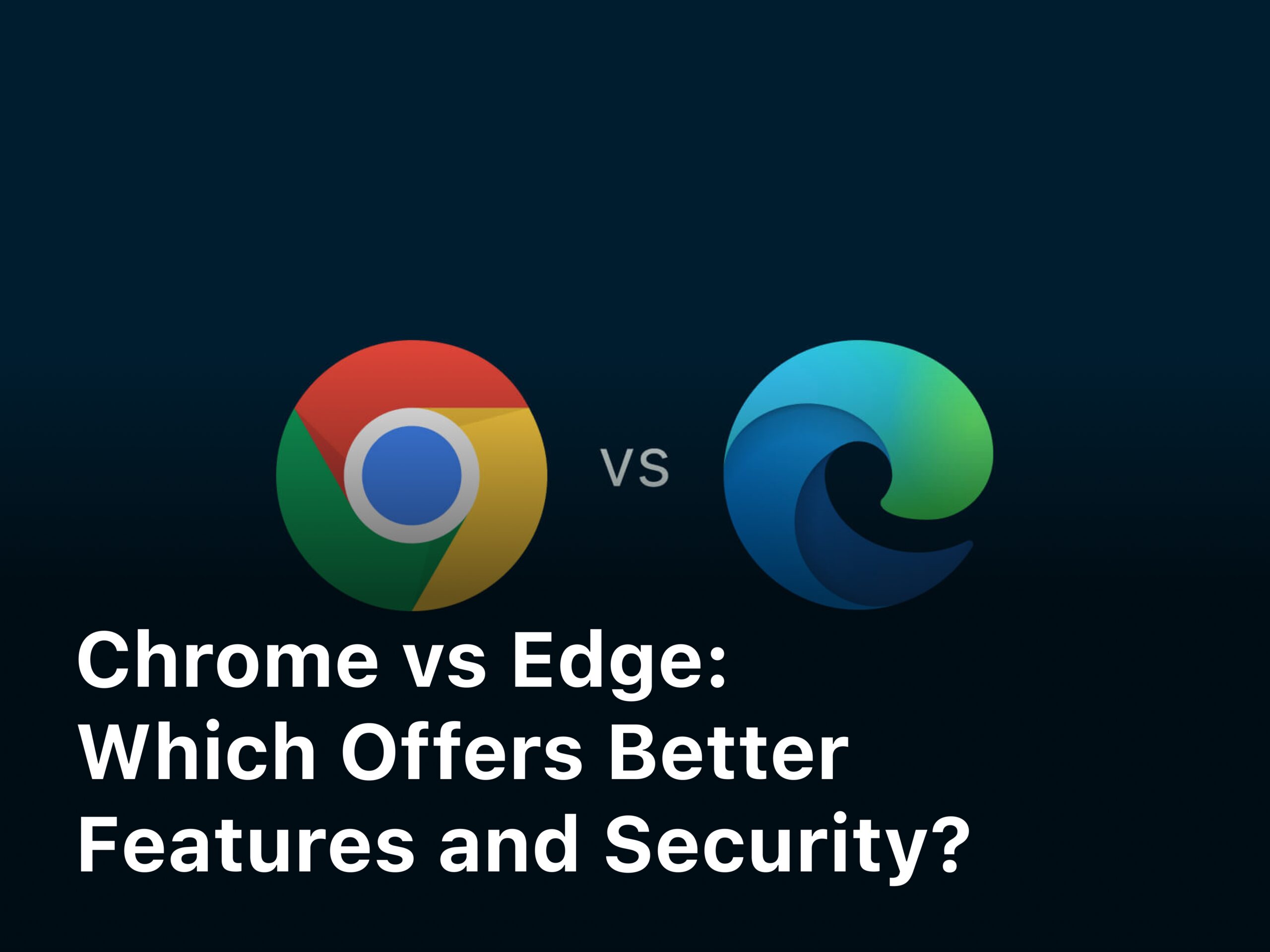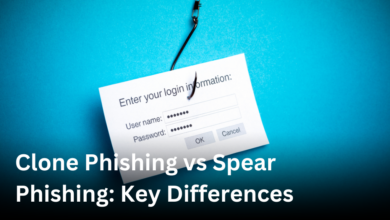
Chrome vs Edge: Which Offers Better Features and Security?
So you’re trying to decide Google Chrome vs Edge as your default browser, huh? It’s a tough choice – both offer solid features and keep your data secure. As much as you may have a preference for one company over the other, what really matters here is which browser is the best fit for your needs. Do you want maximum customization or simplicity? Are you deeply invested in a particular ecosystem? We’re going to break down how Chrome and Edge compare on key factors like features, security, privacy, and performance. By the end of this, you’ll have a much better sense of which browser is right for you and may even discover some useful options you never knew existed. The browser wars rage on, but you don’t have to pick a side. You can choose what’s right for you.
Chrome vs Edge Features: A Comparison
When it comes to features, Chrome and Edge are pretty comparable. Both are free, easy to use, and offer thousands of extensions. However, there are a few key differences to consider:
Chrome lets you sync bookmarks, passwords, and browsing history across devices so you can pick up where you left off on your phone or tablet. Edge offers similar syncing features, but only between Windows 10 devices.
Chrome has a larger selection of extensions, with over 200,000 options to choose from. Edge has a decent amount too, around 30,000, but if you rely heavily on extensions, Chrome may have more of what you need.
Chrome’s incognito mode is more robust, deleting your browsing info and search history as soon as you close the incognito window. Edge’s InPrivate mode still saves some data like saved website data and extensions activity.
Chrome’s password manager securely saves your logins and passwords so you don’t have to remember them. You can also generate strong, unique passwords for new sites. While Edge has a built-in password manager as well, Chrome’s is generally considered more advanced.
Both browsers offer a “do not track” feature to opt out of tracking by websites and advertisers. However, Chrome also has additional anti-tracking protections you can enable for stronger privacy.
At the end of the day, you can’t go wrong with either browser. But if syncing across devices, extensions, and privacy are priorities, Chrome may have a slight edge. Try them both for yourself and see which one suits your needs best!
Chrome Security vs Edge Security: Which Browser Is Safer?
When it comes to security, both Chrome and Edge have strong features to help keep your browsing safe. But which one has the edge (pun intended!) in protecting you online?
Chrome is built with multiple layers of security, including:

- Sandboxing: This isolates websites from accessing your personal information and from each other. If a site is compromised, the damage is contained.
- Automatic updates: Chrome updates automatically in the background to ensure you have the latest security patches.
- Malware and phishing protection: Chrome checks sites and files against a list of known threats and warns you about potential risks.
Edge also offers robust security options like:
- SmartScreen filter: This warns you about malicious websites and downloads. It even checks sites that haven’t been reported yet based on their characteristics.
- Tracking prevention: Edge blocks known trackers and gives you options to block potential trackers. This makes it harder for sites to gather your personal information.
- Password monitor: Edge can check if your saved passwords have been compromised in a data breach and alert you to change them.
Overall, both browsers provide strong security features to help safeguard your data and privacy. Chrome may have a slight advantage with more built-in protections, but Edge is a secure choice as well. For the maximum protection, you can enable all the security options in either browser and practice safe browsing habits. Your online security is worth the effort!
Chrome Extensions and Add-Ons vs Edge Extensions: Selection and Quality
Selection
When it comes to the number and variety of extensions, Chrome has a clear advantage. The Chrome Web Store contains over 180,000 extensions that allow you to customize your browsing experience. In contrast, Microsoft Edge offers a more curated selection of around 1,500 extensions. While Edge’s smaller selection means fewer low-quality extensions to sift through, many popular Chrome extensions are still missing.
Quality and Security
Both browsers have guidelines and review processes in place to help ensure extension quality and security, but Chrome’s openness does present more risks. It’s easier for malicious extensions to slip through the cracks, and users need to be wary of extensions requesting too many permissions. Edge’s tighter control means most extensions are safe to install without worry. However, the trade-off is reduced choice and innovation.
Related Article : 21 .Onion Website From the Dark Web
For most casual needs like password management, ad blocking, or email integration, you’ll find secure and reputable options in both stores. But if you have a specific tool or workflow in mind, you may need to compare the available extensions in each browser to determine which best suits your needs. In the end, you’ll want to weigh the risks of more choice versus more curation and go with the option that gives you the functionality you need with an acceptable level of risk.
Updates and Support
Extension developers generally provide better support for Google Chrome given its huge market share. Updates also tend to release for Chrome first before other browsers. However, Microsoft does work directly with many developers to port popular Chrome extensions over to Edge, and the Edge extensions store has a robust review process to ensure extensions meet high standards of security, privacy, reliability, and performance. So while Edge may get updates second, you can feel confident the available extensions will work well and receive ongoing support.
In summary, while Chrome offers a lot more choice, Edge provides solid options and strong security. For most users, either browser will work great, so you can’t go wrong with whichever interface and features you prefer. But if extension selection is a top priority, you’ll probably want to go with Chrome.
Chrome Performance and Memory Usage vs Edge
When it comes to performance and memory usage, Chrome and Edge are quite comparable. Both are built on Chromium, an open-source browser project, so they share some similarities under the hood. However, there are a few key differences to consider:
Startup and Page Load Times
Edge has a slight edge here (no pun intended!). It typically starts up and loads web pages a bit faster than Chrome. Edge was designed to be lightweight, so it consumes fewer resources when launching and loading sites. If you have an older computer or limited RAM, the speed difference may be more noticeable.
Memory Usage
Chrome is known as a bit of a memory hog. It creates a separate process for each tab, extension, and plugin, which can consume a lot of RAM over time. Edge handles browser processes more efficiently, so it generally uses less memory with the same number of tabs open. If you’re a tab hoarder who keeps dozens open at once, Edge may provide a smoother browsing experience.
Battery Life Impact
Similar to memory usage, Chrome’s multi-process architecture requires more power than Edge’s streamlined design. So if you browse the web on a laptop, Edge will typically provide at least 30-60 minutes more battery life per charge compared to Chrome. For casual use, the difference is modest, but for more intensive tasks like streaming video, gaming, or development work, the improved battery efficiency can be significant.
Overall, while Chrome and Edge share a common platform, Microsoft’s browser comes out slightly ahead for performance, memory usage, and battery life. However, Chrome offers a few more features and a larger collection of extensions which some users may prefer. In the end, the best browser for you depends on what factors matter most and how you use the web. Try them both and see which one feels like the best fit!
Which Browser Should You Choose: Chrome or Edge?
So which browser is right for you—Chrome or Edge? Both options offer useful features, strong security, and the ability to sync information across devices. Let’s compare the pros and cons of each to help determine the best choice for your needs.
Chrome: The Popular Pick
Chrome is Google’s popular browser, used by over 2 billion people worldwide. Some of the main benefits of Chrome include:
- Syncing bookmarks, passwords, and browsing history across all your signed-in devices.
- A large selection of extensions and themes to customize your experience.
- Built-in malware and phishing protection to help keep you safe online.
- A minimal, uncluttered interface that’s easy to navigate.
However, Chrome is a resource hog that requires a lot of memory and can slow down your computer. It also frequently prompts you to sign in with your Google account which some find annoying.
Edge: Microsoft’s Modern Browser
Edge is Microsoft’s latest browser, replacing the outdated Internet Explorer. Key features of Edge include:
- Tight integration with other Microsoft products like Office and OneDrive.
- A “read aloud” feature to have web pages read to you.
- A built-in hub for news, sports, and weather.
- Less demanding on memory and resources so it won’t slow down your PC.
On the downside, Edge has fewer extensions and customization options compared to Chrome. It also frequently prompts you to use Bing as your default search engine which can be irritating.
The Verdict
Overall, Chrome and Edge are both solid, modern browsers with useful features. I would recommend choosing based on your priorities:
- If customization and extensions are important, go with Chrome.
- If system resource usage and Microsoft integration matter more, choose Edge.
- For the best of both worlds, you can even install and use both browsers, choosing one or the other for different needs!
In the end, you can’t go wrong with either Chrome or Edge. Try them both and see which one suits you best. Happy browsing!
Conclusion
So there you have it, a quick comparison of Chrome and Edge to help you decide which browser is right for you. At the end of the day, both offer solid features, performance, and security. Chrome may have a slight edge with its massive extension library and Google integration, but Edge is a worthy competitor that continues to improve. The choice comes down to your personal needs and preferences. If you want tight integration with Microsoft services, Edge is a great option. If you prefer Google’s ecosystem or want access to more third-party extensions, Chrome is probably your best bet. Either way, you can’t go wrong. Now get out there and start browsing! The internet awaits.





